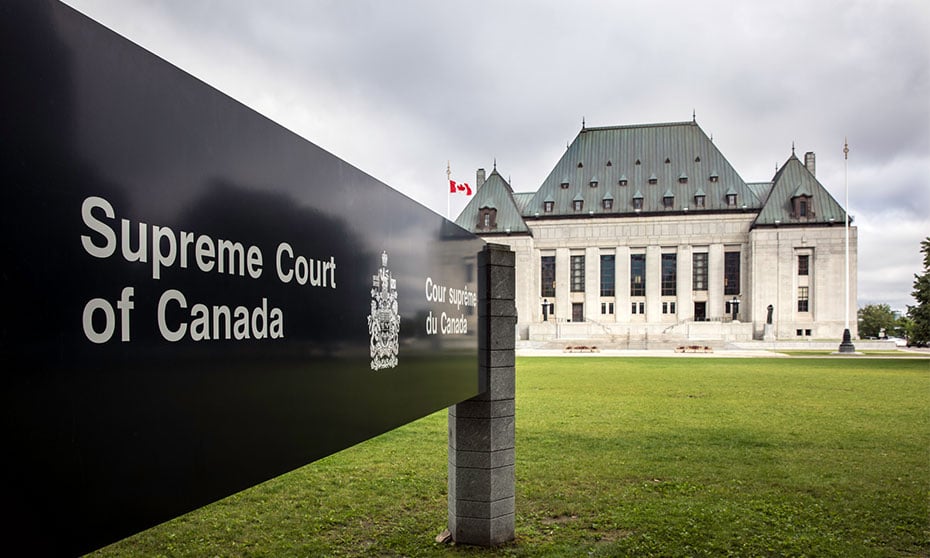First appeal to be heard is British Columbia reference in Trans Mountain Pipeline case

The Supreme Court of Canada will kick off its winter session of appellate hearings this week with the Trans Mountain pipeline appeal from British Columbia’s attorney general; this is one of three provincial references the court will hear in this session, all related to the environment.
The Court will hear just 12 appeals in all this winter, with six scheduled for January, and three each for February and March. Seven pertain to civil matters, while five concern criminal matters. Four of the appeals are from Ontario, three from Quebec, two each from B.C. and Alberta, and one from Saskatchewan.
On Jan. 16, the SCC will hear Attorney General of British Columbia v. Attorney General of Canada, which involving the authority of the province to introduce certain changes to the law governing the regulation of the Trans Mountain Pipeline (an admittedly federal undertaking since the pipeline is interprovincial). On Jan. 17, in Chung v. R., the court will be confronted with the test for mens rea as applied to dangerous driving.
On Jan. 20, the SCC will hear arguments on the proper application of the anti-deprivation rule in Chandos Construction v. Deloitte Restructuring, a corporate bankruptcy case from Alberta.
From Jan. 21 to 23, the highest court will hear a trilogy of appeals from Quebec. In Resolute FP Canada v. Hydro-Québec, it will consider whether disputed (by Resolute) levies are taxes or charges as defined by law or by the 1926 contract. In Attorney General of Quebec v. 9147-0732 Québec inc., the court will hear whether the Charter right to be protected against “any cruel and unusual treatment or punishment” applies to a corporation fined for committing an offence. In 9354-9186 Québec inc. v. Callidus Capital Corporation, the court will have the opportunity to consider the interpretation of the Companies’ Creditors Arrangement Act.
Three criminal cases are scheduled for Feb. 18 to 20. The first, Doonanco v. R., concerns the battered wife syndrome as a defence against a charge of murder, and whether the failure of the accused to retreat when she had the chance before fatally shooting her former domestic partner should invalidate the defence.
In S.H. v. R, the court will consider whether the curative proviso can be applied in view of the cumulative effect of three errors committed in the trial of a drug possession case. And in Attorney General of Ontario v. G., the court will hear arguments as to whether, if someone is found not criminally responsible of sexual assault by reason of mental disorder, a requirement to register under the sex offender registry amounts to discrimination based on disability.
Three civil law appeals will be heard by the SCC from Mar. 24 to 26. The Attorney General for Saskatchewan v. Attorney General of Canada and Attorney General of Ontario v. Attorney General of Canada, the other two provincial references, assail the constitutionality of the Greenhouse Gas Pollution Pricing Act, which imposes a minimum national price on carbon emissions. Each appeal will hear from multiple intervenors including provincial attorneys general and various bodies concerned with climate challenge.
The last hearing of the winter session will take place on Mar. 26; in Estate of Bernard Sherman v. Donovan, a Toronto Star investigative journalist is challenging the sealing orders for court files in relation to the highly publicized murders of billionaire Barry Sherman, CEO and founder of Apotex Inc., and his wife, Honey, in Toronto in December 2017.










